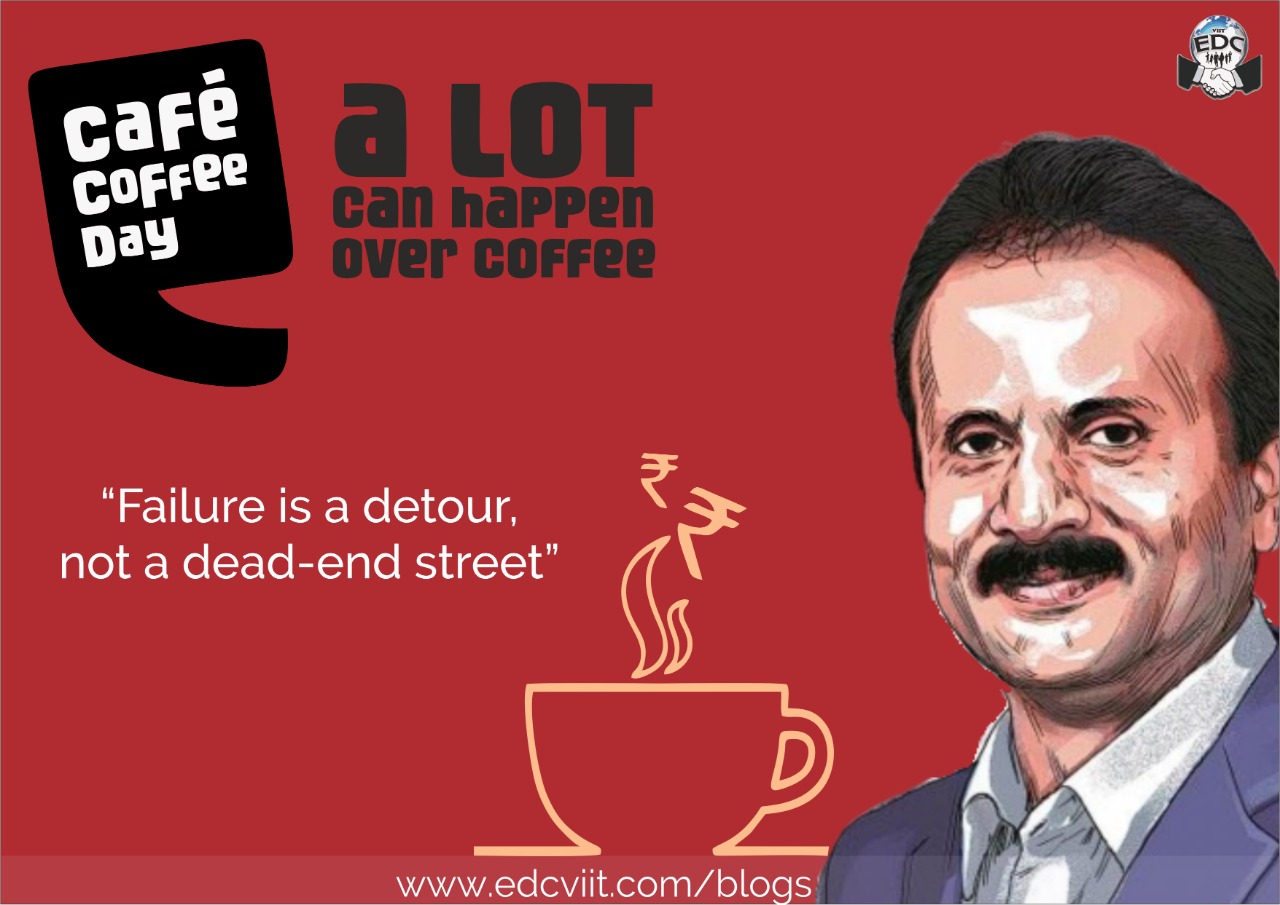A Lot Can Happen Over A Cup of Coffee

- The CCD founder, V G Sidhhartha went missing on Monday, 29th July and was found dead on Wednesday, 31st July.
- Sidhhartha’s letter reveals he was a victim of market turndown, debt and tax terrorism.
- Although, IT department claims the signature doesn’t match his original one.
- Indian government should work on developing a more healthy environment for entrepreneurs.
A Lot Can Happen Over A Cup of Coffee
India has often faced a ton of crises due to the instability in its systems and laws. Substantial amounts of powers are sometimes placed into the wrong hands. A similar incident happened a few days ago when the founder of CCD, V G Sidhhartha went missing causing a mayhem across the media.
Sidhhartha went missing on Monday and his dead body was found on Wednesday morning. Two days before his disappearance, he had purportedly written a letter to his employees revealing his deep debt. The letter addressed to his board of directors and the CCD family expresses regret for not being able to create ‘the right profitable business’. He was highly concerned about the rack and ruin of his company. In his letter he says he had failed as an entrepreneur and feels responsible for letting down people who had put their faith in him. It is quite natural to worry about the finances and the overall growth of the company but considering Siddhartha’s case something really went beyond the limits.
His letter blames the tax authorities for harassment regarding the attachment of his shares. Sidhhartha had invested Rs. 340 crores in Mindtree in 1999. Due to the large amount of pending loans, the Income Tax department went on to attach these shares for security, forming the Mindtree deal. In spite of the restrictions placed before him, he sold these 20.4% to L&T in March of 2019 for Rs 3000 crores approximately. Going against this deal, Sidhhartha requested the attachment of his shares instead of Mindtree. There was a reason as to why Siddhartha was so keen on selling these shares even after all the restrictions. Due to all the loans taken, the company was facing a major liquidity crunch!
Sidhhartha had to pay all the dues somehow and this seemed the only way out of this never ending loan trap. Sidhhartha in his letter further says a senior Income Tax officer was consistently harassing with the attachment of his shares. Back in 2017, in an Income Tax department raid, an unaccounted income of Rs. 362 and Rs. 118 crores was found which further led to the fall in the price of his shares which explains why there was an urgency of selling the Mindtree shares.
As the famous entrepreneurs say ,” Instead of getting into existing markets, enter a unique market which might definitely ensure you a profit in the upcoming 10 years at least”. This exact method is adopted by Swiggy and hence they have invested a wholesome of $100m in this claim.
The latter part of the letter goes on mention of how he was getting pressurized by one of his private equity partners for buying back some shares. He says he had almost sealed the transaction by borrowing money from his friend and wasn’t willing to go back to this deal. This was not the only pressure he had to handle! The tremendous amount of pressure he had from other lenders led to him succumbing finally!
Although the speculations keep going about the IT department stating that the signature isn’t his, ultimately we have lost one of India’s most dynamic and first venture capitalists.
Is our economic system so deviant and ignorant that one of India’s most successful entrepreneur had to end his life? Is his life the price he had to pay for all the debt he was in? Is our taxation system really naive that a company’s owner with Rs.3000 crore revenue led to giving up his life? Is this the harsh reality of an entrepreneur’s life? These questions needs to be answered at this point of time when startup initiatives from the Union Budget are brought into picture. This incident surely indicates the need of better entrepreneurial and taxation reforms for India.
The question still lies whether if India is a place for a healthy entrepreneurial environment yet or not.